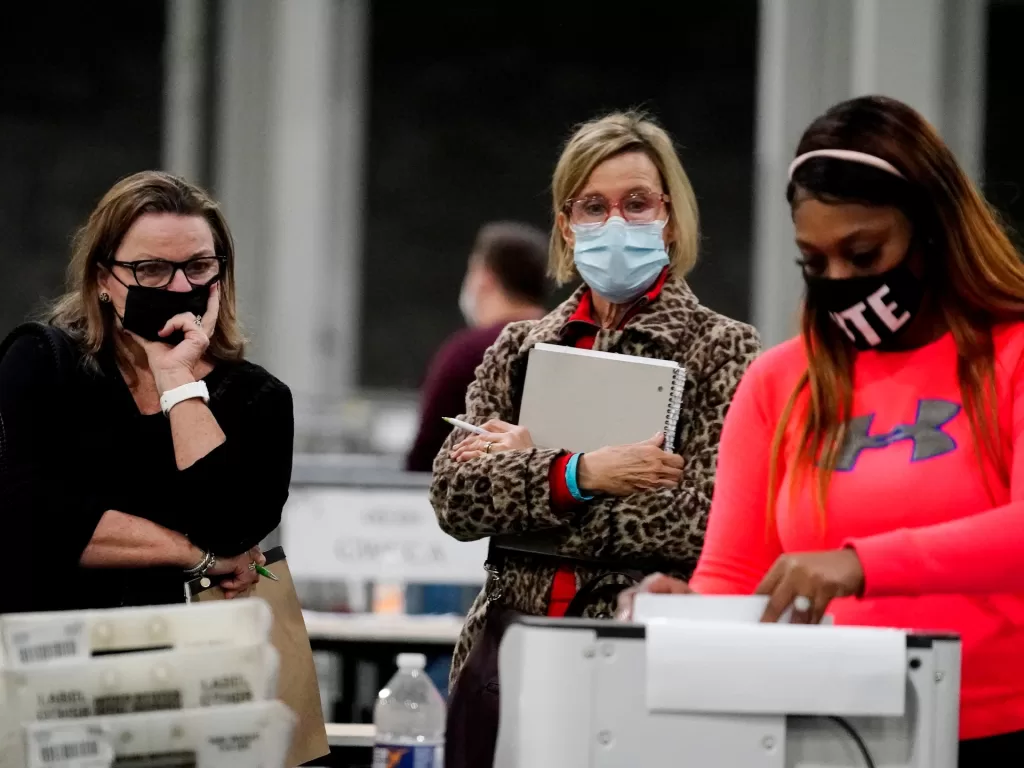Across the country, in Rochester Hills, Michigan, Tina Barton had her own brush with election-related violence.
For more than three decades, Barton, a Republican, served in government, eventually landing the role of city clerk. That office required her to administer elections and maintain voter files, among other duties.
But over the years, she had seen tensions rise. There were early signs of discord in the 2000 election between Democrat Al Gore and Republican George W Bush, a race decided by a few thousand votes in Florida.
Barton also noticed election denialism years later, in 2016. At the time, Green Party candidate Jill Stein pushed for long-shot recounts in three battleground states, including Michigan, after she finished fourth in the presidential race.
As that effort fizzled, Stein decried, “We do not have a voting system we can trust.”
In Georgia, Democrat Stacey Abrams was also defiant after her 2018 gubernatorial loss to Brian Kemp, accusing Republicans of “rigging” the system in their favour, though she acknowledged they were acting within the laws in place at the time.
But those nascent signs of increased scepticism turned into something different following the 2020 vote, Barton said.
“Up to that point, the attack had been more on the process and the doubts on the process and how we do elections in our country,” she told Al Jazeera. “We really hadn’t had the attention on us individually.”
For Barton, that newfound spotlight on election workers came with threats.
After Trump’s defeat in 2020, much of the scrutiny fell on battleground states that Republicans narrowly lost, including Michigan.
Republican National Committee chair Ronna McDaniel referred to Barton by name when she falsely claimed that 2,000 votes had been wrongfully diverted to Democrat Joe Biden.
In reality, Barton and her team had discovered a clerical error in the vote tally, correcting it to ensure accurate results as part of normal election procedures.
But the damage had been done. Hearing Barton’s name falsely associated with election fraud sparked an onslaught of scrutiny and threats. One caller — citing Trump’s false claims about the election — even left death threats on her voicemail just a few days after the race.
“I did not expect to go to my office and pick up my own phone, my own voicemail, and have someone call me by name and say: ‘When you least expect it, we will kill you,'” Barton said.
Barton lost her race for city clerk that year and has since focused on training other election officials. But she has a message for powerful political figures.
“When you’re an individual with a platform and who has followers … you have to take responsibility for the words that you’re saying,” Barton said.
Members of the public, she underscored, “may take those words as directives to take action”.
